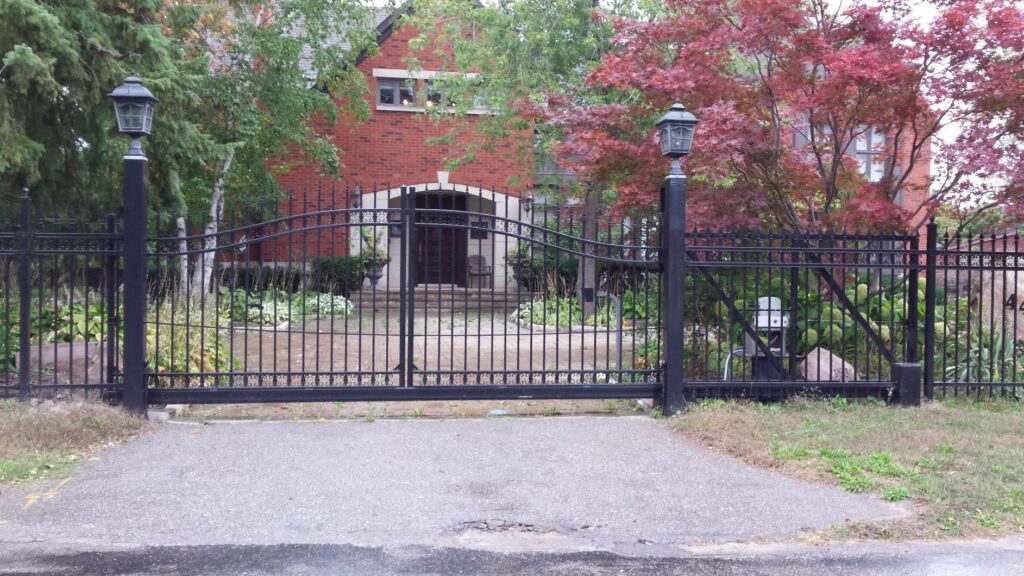
Fences and gates are a major investment in your property’s security and appearance—so it’s only natural to ask: How long will they actually last?
The answer depends on the material you choose, the environment where it’s installed, and how well it’s maintained. In this guide, we’ll walk through the expected lifespan of different types of fences and gates, and what you can do to get the most years out of your installation.
| Material | Average Lifespan | Maintenance Needs | Notes |
| Wrought Iron | 50+ years | Very Low (if powder-coated) | One of the most durable options |
| Galvanized Steel | 40–50 years | Low | Excellent for gates and fencing |
| Aluminum | 20–30 years | Very Low | Corrosion-resistant, lightweight |
| Pressure-Treated Wood | 10–15 years | High | Prone to rot, warping over time |
| Vinyl | 15–25 years | Moderate | Can become brittle in cold weather |
With minimal but consistent maintenance, metal fences and gates can easily outlast wood or vinyl—and look better doing it.
Wrought iron and galvanized steel are favored in both residential and commercial projects for one reason: longevity. They don’t rot like wood, crack like vinyl, or degrade from UV exposure. When fabricated and installed properly, they hold up for decades—making them a smarter long-term investment.
If you’re looking for a fence or gate that won’t need to be replaced every 10 to 15 years, metal is the best option. With the right material and a durable coating system, your installation can last for generations with little upkeep required.
Not sure which material is best for your environment or budget? Our team can walk you through your options and help you choose a fence or gate system built for performance and longevity.